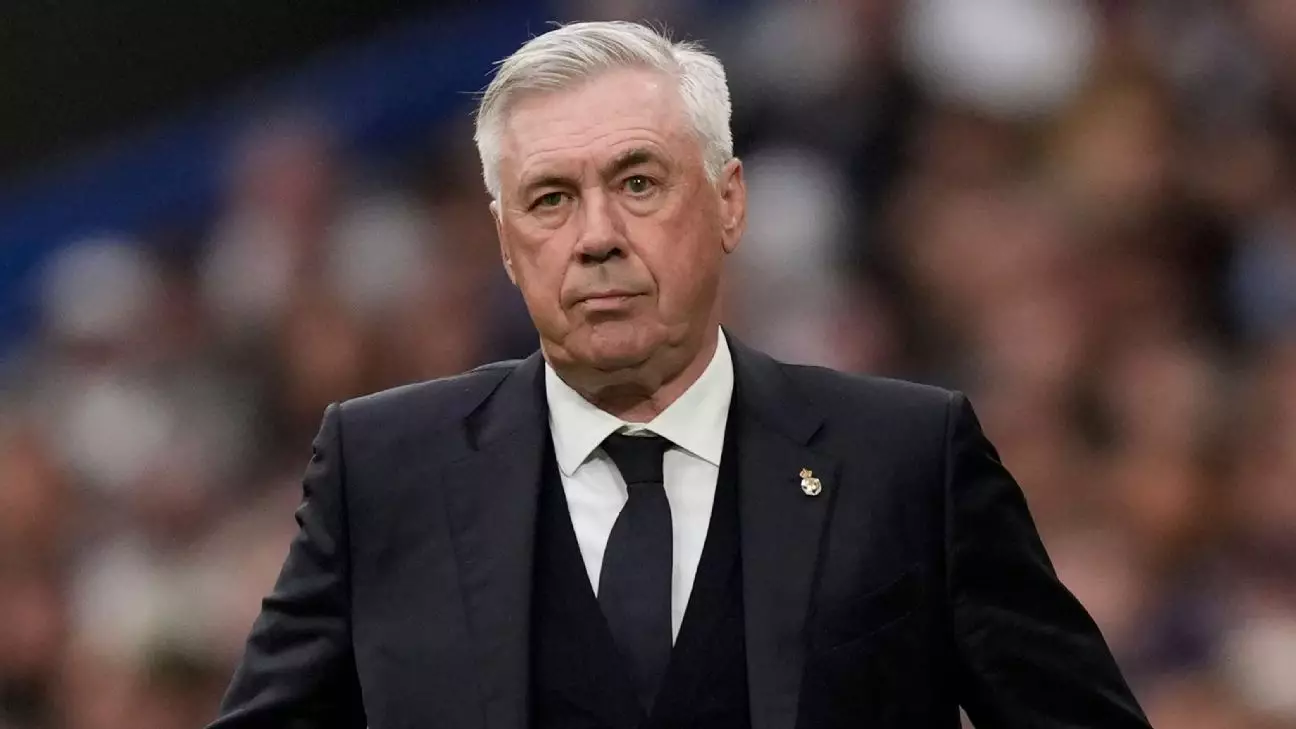In the fast-paced world of football management, few narratives shine as brightly as the ascent of Xabi Alonso. After nearly three influential years at Bayer Leverkusen, Alonso has confirmed his departure at the season’s end, leaving a transformative legacy in his wake. His reputation has soared, transitioning the Bundesliga outfit from the precipice of relegation to the heights of domestic glory. As the Spanish tactician prepares for the next chapter of his career, all eyes are on Real Madrid, where Carlo Ancelotti’s exit seems imminent. It is a compelling saga of talent, ambition, and promising potential.
Alonso, having made a name for himself as a player with a keen tactical mind and remarkable vision, has brought those same attributes to the coaching realm. His impressive record at Leverkusen, culminating in an unbeaten domestic double in 2024, has established him as one of the most respected figures in football. Ancelotti himself has lauded Alonso’s contribution to German football, asserting that “all doors are open” for the former midfielder. Such endorsement from a coaching giant is indicative of Alonso’s readiness for greater challenges and responsibilities.
Ancelotti’s Legacy and the Pursuit of Excellence
Carlo Ancelotti is a name that resonates deeply within the annals of Real Madrid’s storied history. With an unmatched collection of trophies, including three Champions League titles, Ancelotti’s tenure has been defined by success. Yet, like any great narrative, there are twists and turns; recent critiques regarding Madrid’s form have surfaced, especially after a disappointing Champions League quarterfinal elimination. It’s an irony that even the most successful coaches can find themselves at a crossroads, with questions about consistency and competitive spirit surfacing amid the club’s illustrious history.
Ancelotti’s reflections on his relationship with Real Madrid are especially poignant. He describes a “honeymoon” phase that reflects a deep-seated passion for the club—a sentiment that many fans can relate to. However, in the engaging and often volatile world of football management, such relationships are subject to scrutiny. The emotional weight carried by a club that embodies both history and glory can be simultaneously rewarding and burdensome, and Ancelotti’s insights provide a glimpse into the complexities of a managerial role at such a prestigious institution.
A New Dawn for Real Madrid? The Potential for Change
Should Alonso take the helm at Real Madrid, it would not only signal a shift in leadership but also a reinvigoration of the club’s philosophy. His managerial style, characterized by progressive tactics and player development, aligns with the aspirations of both fans and players alike. In an era where modern football prioritizes adaptability and innovation, Alonso represents a promising approach—one that could breathe fresh life into the squad. His visionary understanding of the game, honed under the tutelage of some of the best in the business, positions him uniquely to lead a club with Madrid’s ambitions.
Furthermore, the looming Clásico this weekend against Barcelona adds an extra layer of tension and excitement to the narrative. Both clubs have shown their prowess, but the stakes for this match are monumental. A win for Madrid could drastically shift their trajectory in the league, making it imperative for Alonso (and Ancelotti, for now) to strategize effectively against their fierce rivals who have historically dominated their recent encounters. The tactical battle unfolding on the pitch is not only about skill but also about the psychological edge that each manager brings to the game—a testament to the broader implications of managerial decisions on the field.
Future Implications: The Legacy of a Tactician
In contemplating Alonso’s potential to succeed Ancelotti, it becomes essential to assess the long-term implications for Real Madrid. The club finds itself at a pivotal moment, oscillating between a storied past and the uncertain vistas of the future. If Alonso harnesses his strategic capabilities and revitalizes a team that has seen its share of challenges this season, he could cement his legacy as one of the great leaders in modern football.
As the footballing landscape continues to evolve, with young talents and fresh ideas constantly emerging, the pathway for managers like Alonso becomes even more crucial. His story serves as a reminder that in the world of sports, the right blend of expertise, timing, and vision can lead to monumental achievements. It stands to reason that Alonso’s next steps could redefine not only his career but also that of Real Madrid—as they embark on another ambitious journey toward reclaiming their place at the summit of global football.

